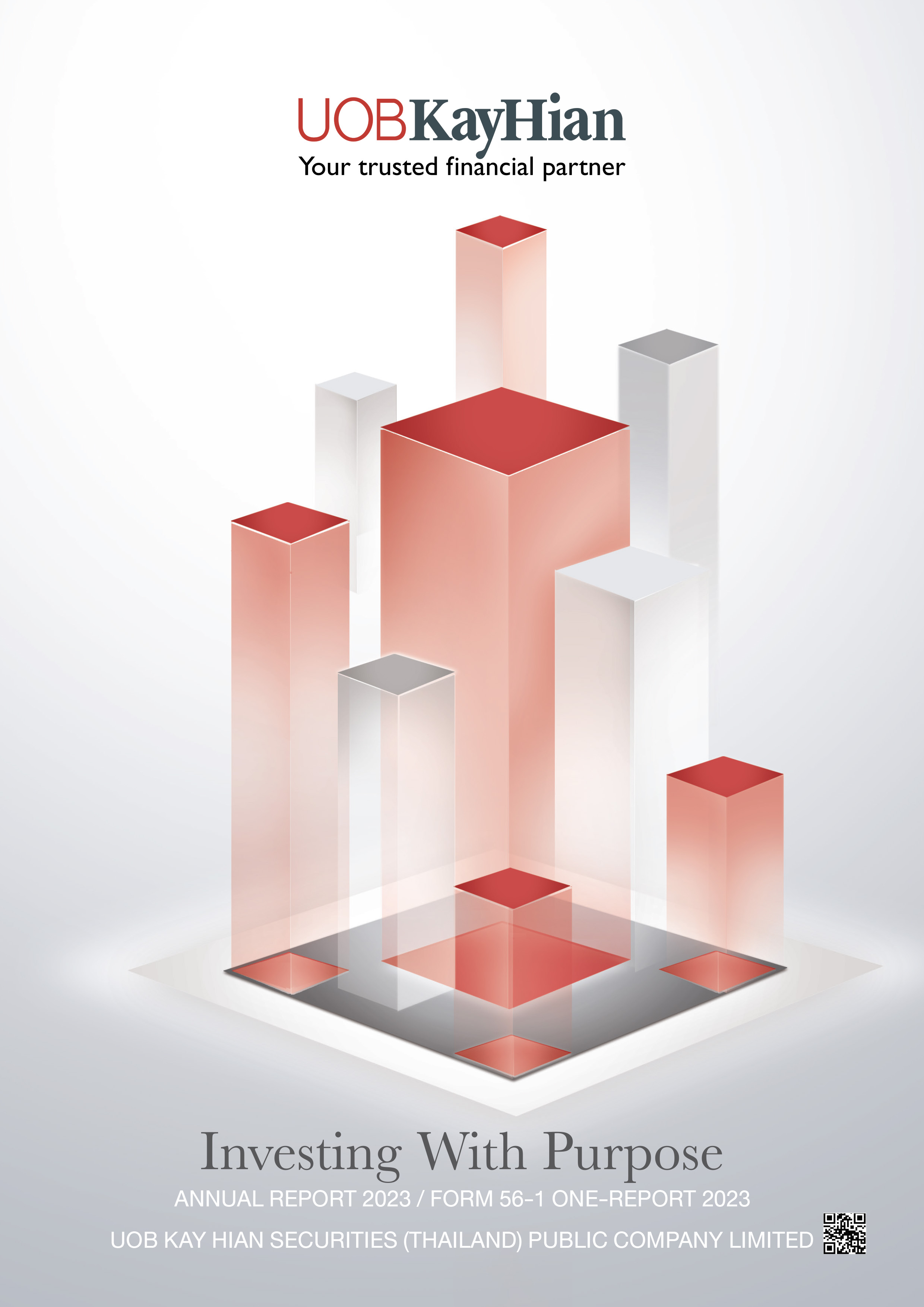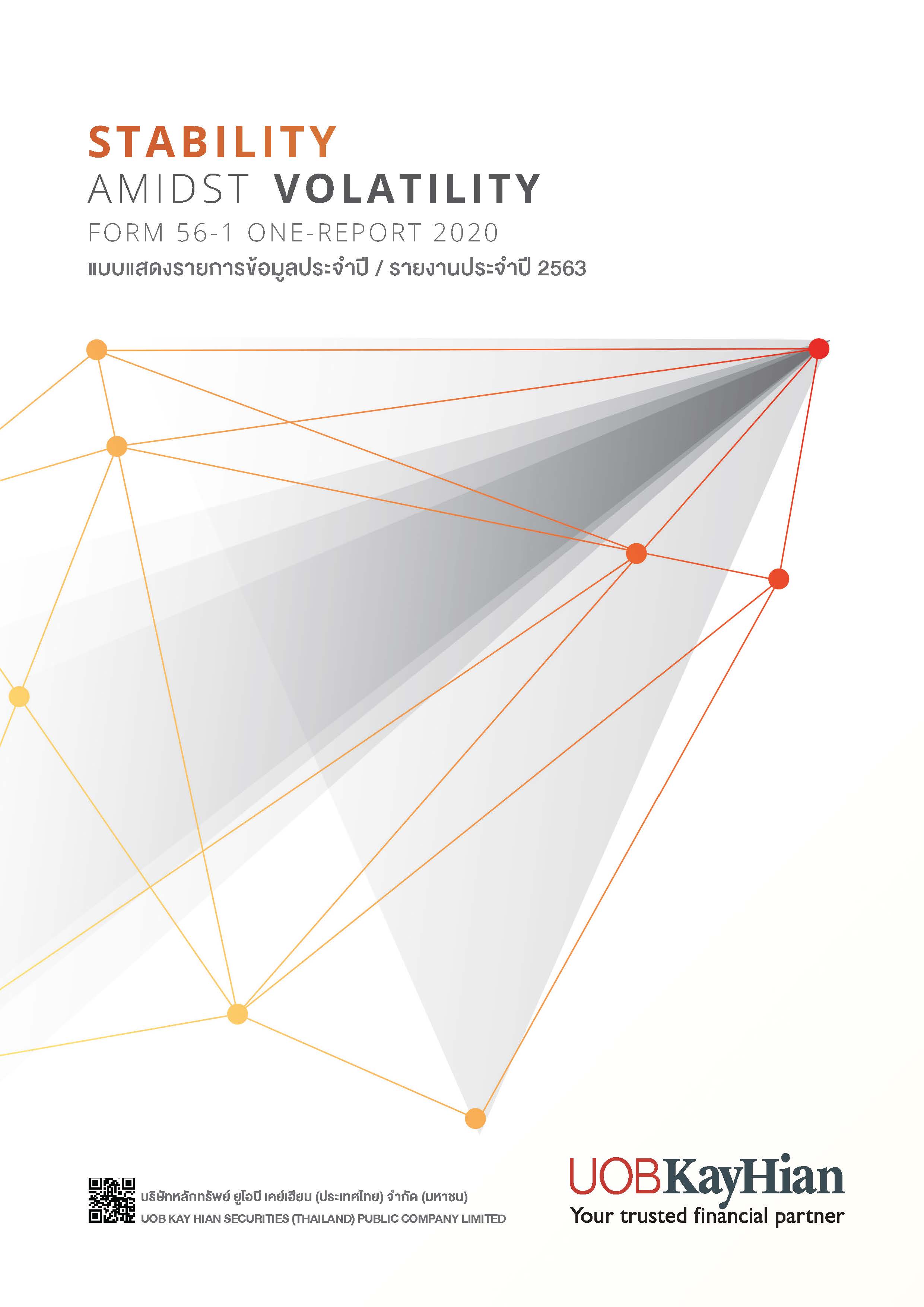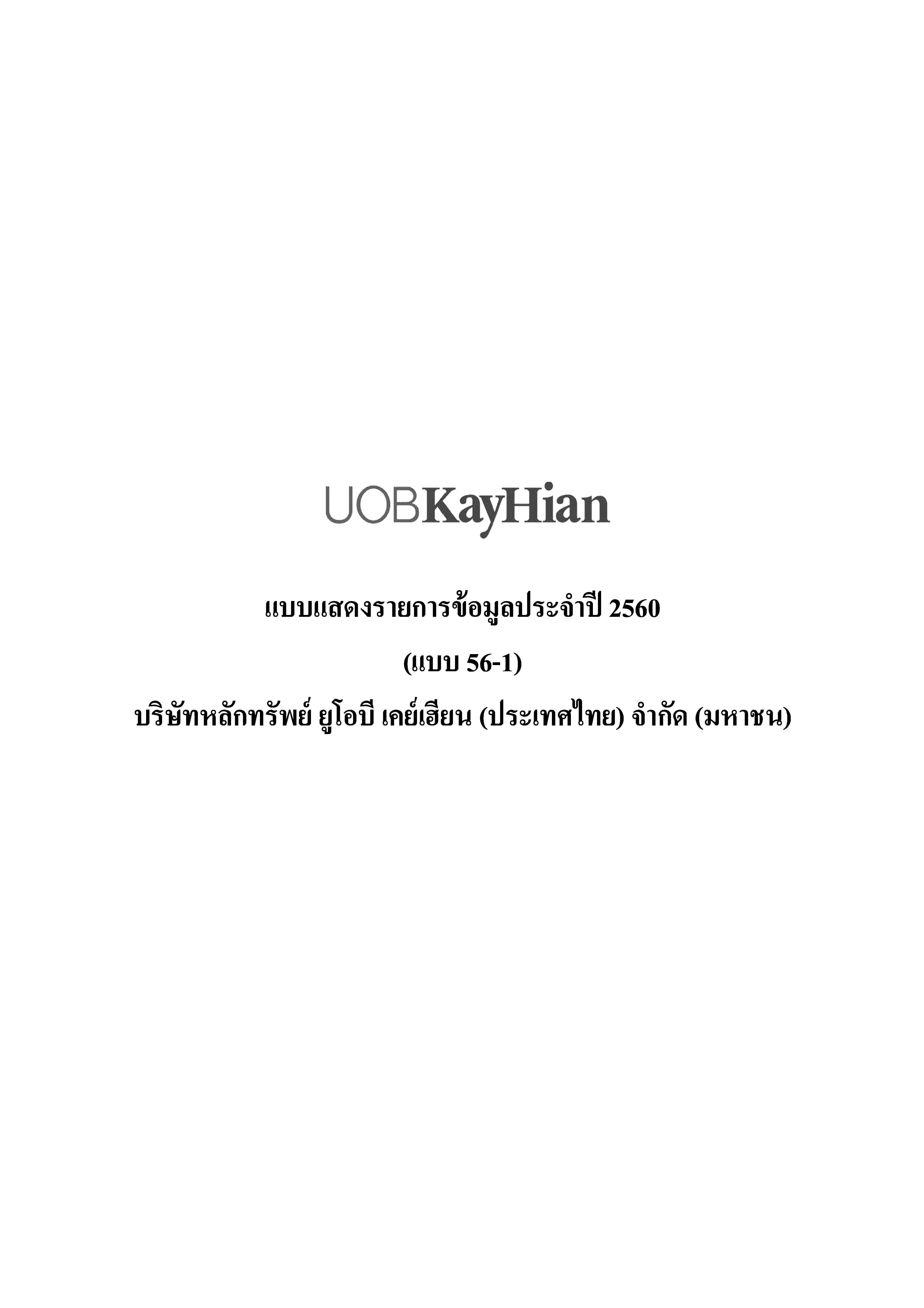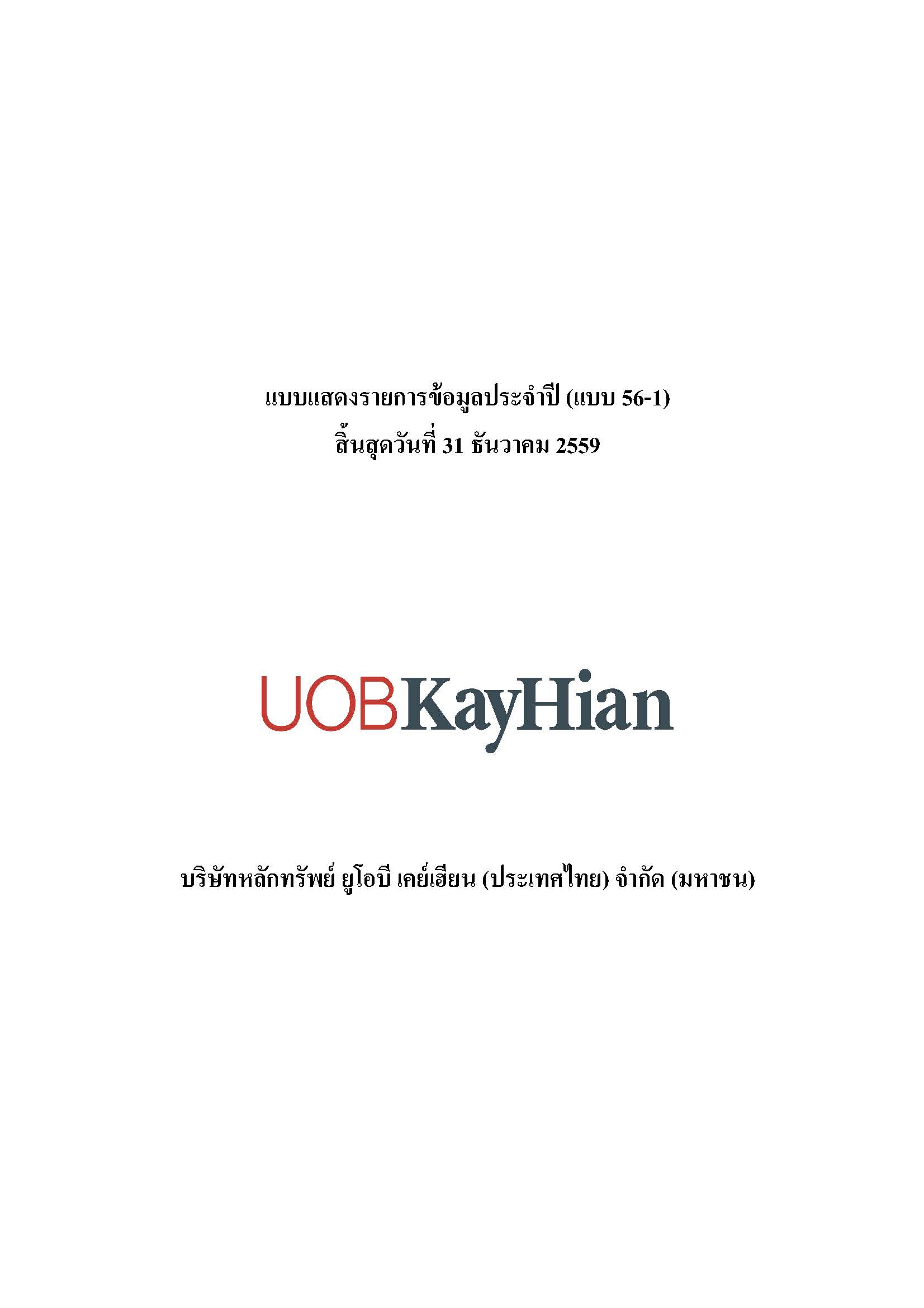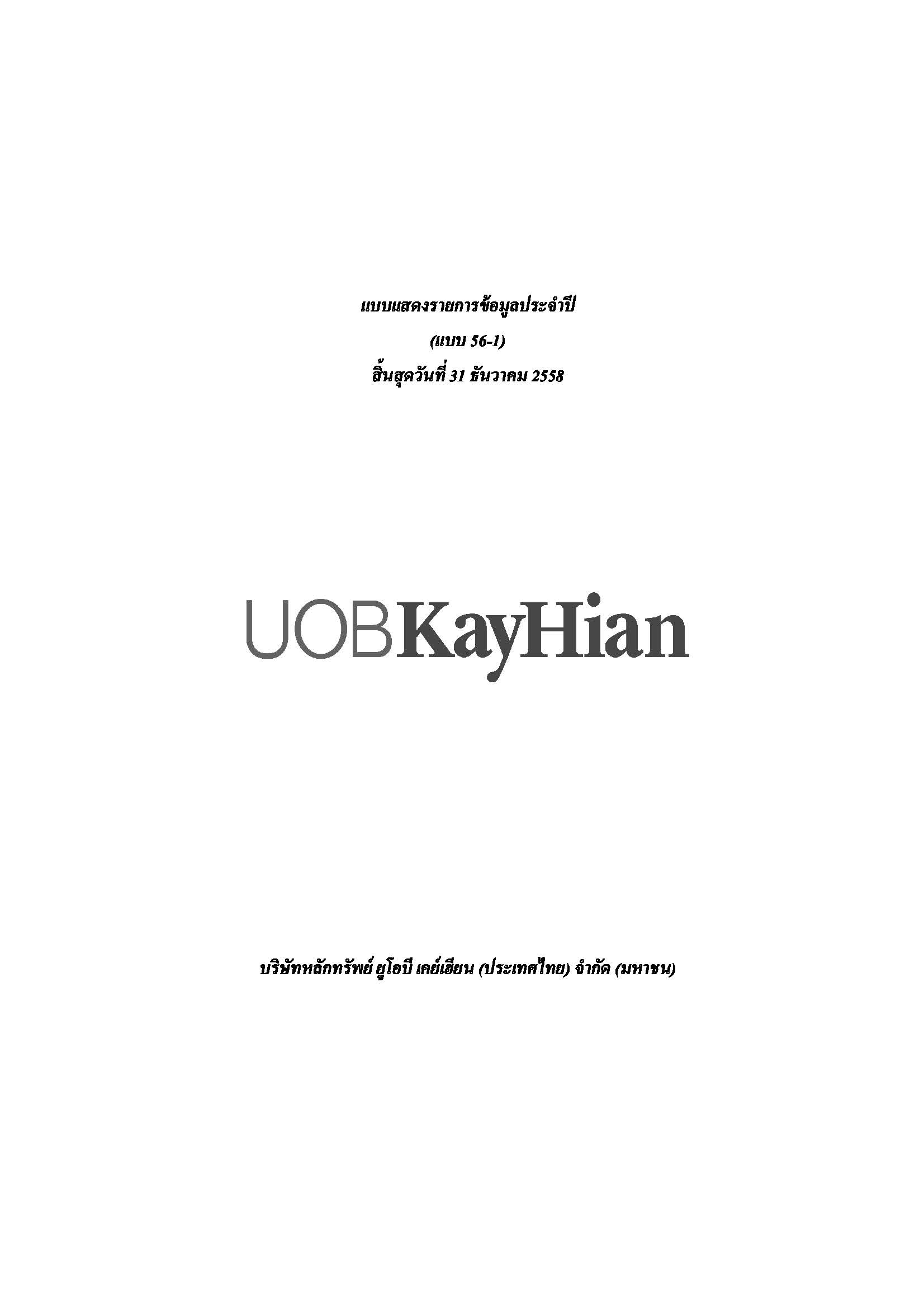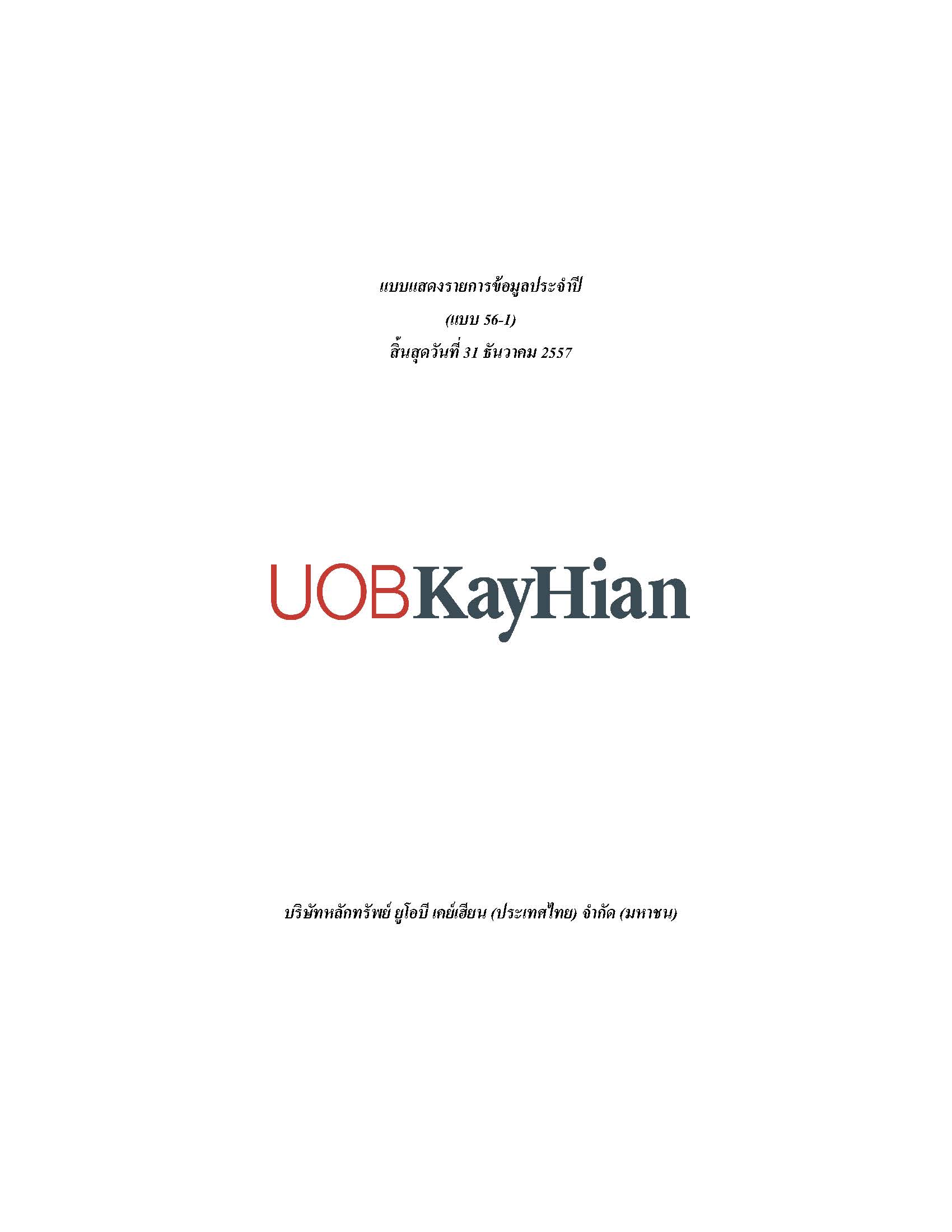Personal Data Protection for Shareholders’ Meeting
UOB KAY HIAN SECURITIES (THAILAND) PUBLIC COMPANY LIMITED (“UOBKH”) gives top priority to your privacy and safeguards your personal data, as a shareholder, authorized person or proxy. UOBKH, therefore, has set out policies, rules and regulations for UOBKH’s business, providing strict measures in protecting your personal data so that you can be assured that your personal data entrusted to UOBKH will be processed according to your needs and in accordance with the laws
UOBKH would like to inform you, as a data owner, of the purposes and details of the collection, usage and / or disclosure of your personal data as well as your legal rights in connection with personal data, as follows:
“Personal Data” means data that can directly or indirectly identify you.
Personal Data that UOBKH collects, uses and / or discloses
For the purposes of convening and attending the Shareholders’ Meeting, UOBKH shall collect your Personal Data including name-surname, age, date of birth, national identification number, passport number, taxpayer identification number, securities holder registration number, deposit account number, contact information, such as home address, workplace, phone number, fax number, email, IP address, voice recording, still picture, moving picture, and other information deemed as Personal Data under the Personal Data Protection Laws.
For identity verification, UOBKH shall request a photocopy and / or a copy of your identification card, which may contain sensitive Personal Data, such as religion. UOBKH has no intention to collect such sensitive Personal Data from you, thus asking for your cooperation to cover such data to make it unreadable prior to submitting the copy of your identification card to UOBKH.
Purposes and lawful basis of collecting, using and / or disclosing Personal Data
UOBKH shall collect, use and / or disclose your personal data only as necessary, based on our legitimate purposes or there is a lawful basis, including to fulfil our legal obligations, such as for calling and convening the Shareholders’ Meeting, verifying identity, delivering relevant documents, and carrying out any action required by law, such as the Public Limited Companies Act, B.E.2535 (1992), the Civil and Commercial Code and any other related laws, or to carry out actions necessary for legitimate interests of UOBKH or other persons or juristic persons, such as for preparing the Shareholders’ Meeting minutes, broadcasting video of the Meeting, recording still and moving pictures to be used for preparing the Meeting minutes and for publication via printed media and electronic media, for security, as well as for any other necessary actions, taking into account the fundamental rights of your Personal Data and to the extent that it is within your reasonable expectation.
Sources of Personal Data
UOBKH shall collect Personal Data directly from you and / or may collect Personal Data obtained from securities registrar, such as Thailand Securities Depository Co., Ltd. (TSD), only when necessary through methods that are in compliance with legal requirements.
Disclosure of Personal Data
UOBKH may disclose your Personal Data to government authorities, regulators, and relevant persons or agencies e.g. the Ministry of Commerce, the Securities and Exchange Commission, the Stock Exchange of Thailand, Thailand Securities Depository Co., Ltd., courts, data processors, third party service providers, competent authorities, etc., for the purposes as described in this Personal Data Protection Policy. UOBKH shall oversee that such persons or entities receiving such data will collect, use, and / or disclose your Personal Data to the extent and under the purposes as described in this Policy.
Duration of your Personal Data retention
UOBKH will retain your Personal Data for as long as necessary during the period you are UOBKH’s shareholder, or for as long as necessary to achieve related purposes, unless law requires or permits longer retention period of not over 10 years. UOBKH shall take appropriate actions to erase, destroy, or anonymize the Personal Data when it is no longer necessary or when the period lapses.
Protection of your Personal Data
For retention of your Personal Data, UOBKH implements technical measures and organizational measures to ensure appropriate security in the Personal Data processing and to prevent Personal Data breach. UOBKH has set out policies, rules and regulations on Personal Data protection, e.g. security standards of information technology and measures to prevent data recipients from using or disclosing the data for other purposes or without authorization or unlawfully. UOBKH has amended such policies, rules and regulations as frequently as deemed necessary and appropriate.
Moreover, UOBKH’s executives, employees, staff, contractors, agents, advisers and data recipients are obligated to keep the Personal Data confidential pursuant to confidentiality measure provided by UOBKH.
Your rights related to Personal Data
Your rights are legal rights, namely withdrawal of consent, data access, data portability, objection, data erasure or destruction, processing suspension, data rectification and compliant lodging. You may exercise any of these rights within legal requirements at the present or as amended in the future as well as regulations set out by UOBKH. In case you are under 20 years old or your legal contractual capacity is restricted, your father and mother, guardian or representative may request to exercise the rights on your behalf.
The exercise of aforementioned rights may be restricted under relevant laws and it may be necessary for UOBKH to deny or not be able to carry out your requests, e.g. to comply with the laws or court orders, public tasks, your request in breach of rights or freedom of other persons, etc. If UOBKH denies the request, UOBKH will inform you of the reason.
How to contact UOBKH and / or the Data Protection Officer
If you have any suggestions or inquiries regarding collection, usage and / or disclosure of your Personal Data as well as a request to exercise your rights, you may contact UOBKH and / or the Data Protection Officer via the following channels:
Tel. 026598000 ext. 8427
Data Protection Officer
Email: [email protected]
UOB KAY HIAN SECURITIES (THAILAND) PUBLIC COMPANY LIMITED, 130-132 Sindhorn Tower I, Wireless Road, Lumpini, Pathumwan, Bangkok, 10330


